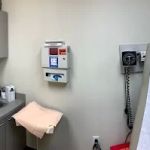Can Sleep Apnea Cause High Blood Pressure? Understanding the Connection
- 1. What is Sleep Apnea?
- 2. The Relationship Between Sleep Apnea and High Blood Pressure
- 3. How Sleep Apnea Leads to Hypertension
- 4. Real-Life Case Study: Sleep Apnea and High Blood Pressure
- 5. Managing Both Conditions Effectively
1. What is Sleep Apnea?
Sleep apnea is a common disorder where your breathing repeatedly stops and starts during sleep. This disruption can lead to poor sleep quality, which has a significant impact on your overall health. The two main types of sleep apnea are obstructive sleep apnea (OSA) and central sleep apnea, with OSA being the most prevalent.
In OSA, the muscles in the throat relax excessively, blocking the airways. This leads to periods of apnea, where breathing is paused for a few seconds or even longer. These interruptions cause a drop in oxygen levels in the blood, which can have serious health consequences.
2. The Relationship Between Sleep Apnea and High Blood Pressure
The link between sleep apnea and high blood pressure (hypertension) is well-documented. People with sleep apnea are more likely to develop hypertension due to the repeated drops in oxygen levels during the night, which can strain the cardiovascular system. The lack of oxygen causes the body to release stress hormones like adrenaline, which can lead to an increase in blood pressure.
Moreover, the continuous interruption of sleep can cause the body to remain in a heightened state of alertness, leading to an increase in blood pressure over time. This connection is especially dangerous because high blood pressure is often a silent condition, and many people with sleep apnea may not be aware of their elevated blood pressure levels until serious health problems arise.
3. How Sleep Apnea Leads to Hypertension
Understanding how sleep apnea contributes to hypertension is key to managing both conditions. During episodes of sleep apnea, the sudden drop in oxygen levels causes a brief increase in heart rate and blood pressure. This process can happen multiple times throughout the night, leading to an overall increase in the pressure the heart must endure.
Over time, the strain caused by these repeated episodes can lead to persistent high blood pressure. This is particularly problematic because untreated high blood pressure increases the risk of heart disease, stroke, kidney failure, and other serious health conditions.
Additionally, studies have shown that people with sleep apnea are less likely to experience the deep, restorative stages of sleep, which are crucial for heart health. Without proper rest, the body has difficulty regulating blood pressure, further exacerbating the problem.
4. Real-Life Case Study: Sleep Apnea and High Blood Pressure
Take the example of John, a 52-year-old man who struggled with sleep apnea for years but never sought treatment. Over time, he noticed that he had difficulty concentrating during the day and often felt fatigued despite sleeping for long hours. His doctor diagnosed him with sleep apnea after an overnight sleep study.
To his surprise, John’s blood pressure readings were consistently high, even though he had no prior history of hypertension. After starting treatment for sleep apnea, including the use of a CPAP machine to keep his airways open during sleep, John’s quality of sleep improved, and his blood pressure gradually returned to normal levels.
This case illustrates how untreated sleep apnea can contribute to high blood pressure, and how addressing the underlying sleep disorder can lead to improvements in both sleep quality and cardiovascular health.
5. Managing Both Conditions Effectively
If you have both sleep apnea and high blood pressure, managing these conditions together is crucial for your long-term health. Treatment options include:
- Using a CPAP machine: This device helps keep the airways open, preventing the breathing pauses that cause sleep apnea.
- Regular monitoring of blood pressure: Keeping track of your blood pressure levels can help you and your doctor adjust treatments as necessary.
- Lifestyle changes: Losing weight, reducing alcohol consumption, quitting smoking, and exercising regularly can help manage both sleep apnea and high blood pressure.
Working closely with a healthcare provider is essential for finding the best treatment plan. With the right approach, both sleep apnea and high blood pressure can be managed effectively, improving overall health and quality of life.







 Sahara Dental Center part Brident Dental & Orthodontics4.0 (788 review)
Sahara Dental Center part Brident Dental & Orthodontics4.0 (788 review) Familia Dental4.0 (458 review)
Familia Dental4.0 (458 review) Chen Winston w DDS4.0 (23 review)
Chen Winston w DDS4.0 (23 review) Mercy Care3.0 (135 review)
Mercy Care3.0 (135 review) Summit Dental Care4.0 (124 review)
Summit Dental Care4.0 (124 review) Palo Verde Smiles formerly known as Critchfield Dental4.0 (170 review)
Palo Verde Smiles formerly known as Critchfield Dental4.0 (170 review) The Importance of Oral Health Education During Pregnancy for a Healthy Pregnancy
The Importance of Oral Health Education During Pregnancy for a Healthy Pregnancy Best Tips for Brushing Your Teeth Properly for Healthy Gums: Essential Techniques for Oral Health
Best Tips for Brushing Your Teeth Properly for Healthy Gums: Essential Techniques for Oral Health Why Skipping Dental Checkups Can Lead to Bigger Oral Health Problems
Why Skipping Dental Checkups Can Lead to Bigger Oral Health Problems Advantages of Porcelain Dental Restorations
Advantages of Porcelain Dental Restorations How Can Diabetes Cause Tooth and Gum Problems? Preventing and Managing Oral Health Issues
How Can Diabetes Cause Tooth and Gum Problems? Preventing and Managing Oral Health Issues Healthy Habits for Promoting Good Oral Health and Hygiene: Tips for a Healthy Smile
Healthy Habits for Promoting Good Oral Health and Hygiene: Tips for a Healthy Smile